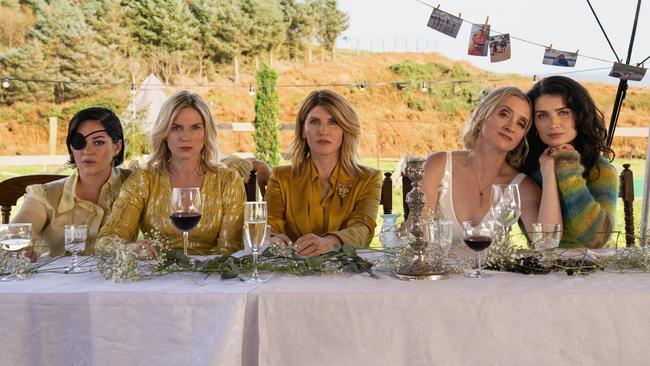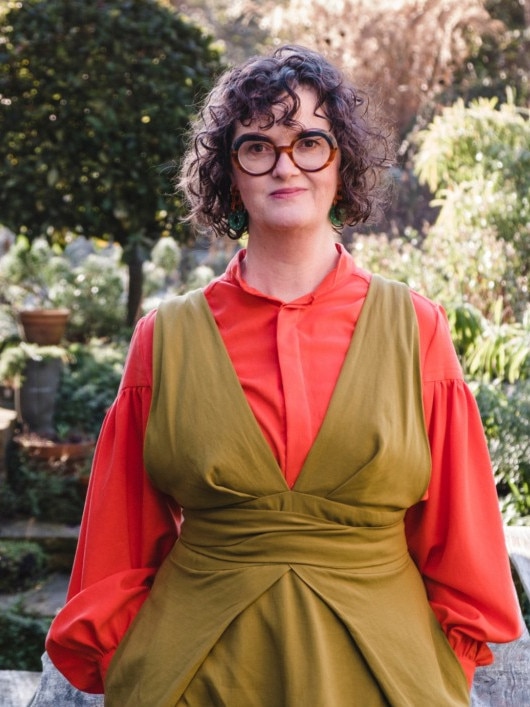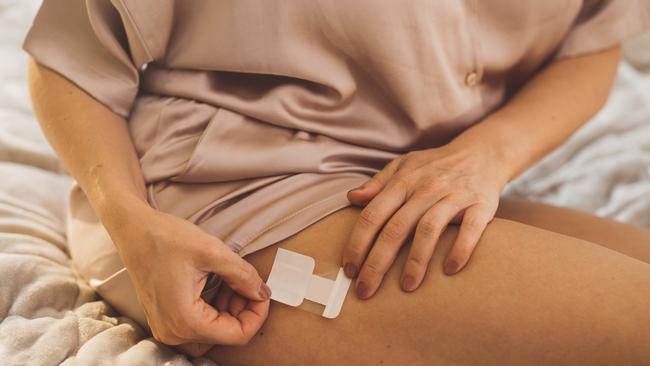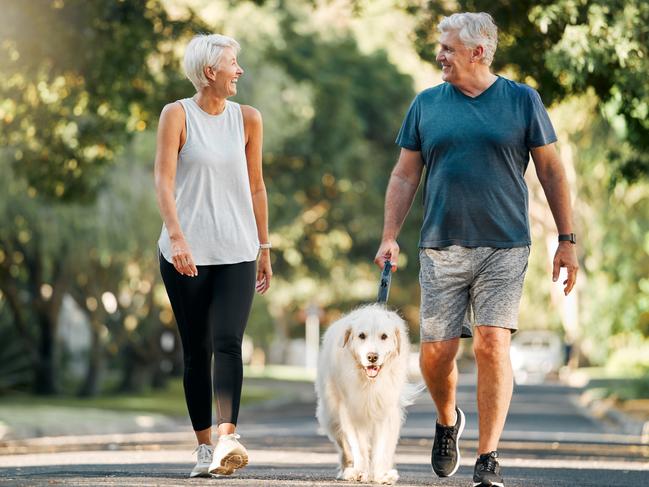Do you need a ‘menopause doula’?
Fed up with being dismissed by medical professionals, women are increasingly turning to coaches to guide them through midlife.

There’s a scene in the forthcoming second season of Bad Sisters in which 50-year-old Eva, played by Sharon Horgan, introduces her — wait for it — menopause coach. “Is that real?” scoffs nosey church lady Angelica, played by Fiona Shaw. “It sounds makey-uppy!”
If you’re too young to be perimenopausal, you may well agree. If, however, you’re in the thick of brain fog, hot flushes and high anxiety out of nowhere, you may be thinking, “Where do I sign up?”
Well, the good news is that what was, predictably, a Californian trend is traversing shores. While it’s still pretty niche, there are dozens of UK menopause coaches and doulas. There’s little difference between the two, by the way — we’re generally talking non-medically trained female coaches offering to guide and support you through what they have already experienced. “It’s like having a big sister,” says Leesa Whisker, a 50-year-old stylist who has been seeing hers for six months. Horgan, 54, also has one: learning more about the menopause, she told Vanity Fair, “made a huge difference to my life, so I wanted to pop that in [to the show] in some way”.
For Eva Garvey — Sharon Horgan’s character in Bad Sisters — this means (without wanting to give too much away) a sexual reawakening with an actual, real-life man, after shaking off her sense of feeling old and unsexy. “That’s definitely possible,” Catchpowle says. “As women come out of it they often say, ‘I was thinking I was old — I’m not!’ Your potential gets switched on again.”
So what exactly does a menopause doula do? “It’s like a birth or death doula,” says Fiona Catchpowle, a 57-year-old menopause doula and founder of the Menopause School, from which 82 students have graduated. (Not all will be menopause doulas; some, for example NHS health coaches and social prescribers, are adding a layer of expertise to their roles.) “It’s an intervention.” How long that lasts is up to you — it could be a one-off session or a year-long programme; some also offer group sessions and workshops. What’s offered ranges from the “biological and pragmatic” — “We’re not sitting in a teepee,” Catchpowle says — to full California woo-woo with support crystals and ceremonies, but most doulas offer information about your body as well as guidance, support and advice on nutrition, exercise and self-care. (“Don’t overlook basic biology when you’re in the spiritual zone,” Catchpowle warns.)
What’s more, adds Kate Codrington, a 58-year-old menopause doula and author of The Perimenopause Journal, the service is a “safe space to unburden your thoughts … You’re welcome to bring all your small, vulnerable bits.” Perimenopausal women, she explains, “are often in a great deal of distress, overwhelm and exhaustion. They’re at odds with the world, with a need to be away from people. Yet the world requires them to be present, holding it together with a nice smile.” Not here it doesn't.
A holistic approach is really important for all women.

You may be thinking, “Why not just ask your GP for HRT?” Well, for many women it’s not so straightforward. My circle of midlife friends tell me, “GPs don’t have time — they give you HRT but there’s no follow-up.” Or, “HRT didn’t help with my brain fog or low libido — it’s a blunt instrument.” Or, “Chances are you’ll be dismissed — it can be a battle to get what you need.” Many women don’t want to bother their GP, Catchpowle adds: “They’re not sure it’s bad enough.”
Menopause doulas not only help women to self-advocate, but also explore more nuanced issues that doctors don’t have time for. “In the past three years many more women have gone to the doctor demanding HRT, but it has not worked [for all of them],” says Catchpowle, who is based in the West Midlands and charges £45 for an hour-long one-to-one session. “[Success with] HRT can be about fitting it into your lifestyle. You might need to look at gut and liver support if you’re not metabolising the hormones correctly. Or if you’re a runner or swimmer, it may be that transdermal HRT doesn’t work because the skin isn’t dry enough.”

According to Dr Annice Mukherjee, a consultant endocrinologist and the author of The Complete Guide to the Menopause: “Some women can’t have HRT for medical reasons, some experience side-effects. We are complex, multisystem organisms and every system interacts with each other. If one or a few of those systems are out of kilter, it might not be very obvious until menopause hits, and then the hormone changes cause a sort of earthquake. A GP can’t solve all those problems in ten minutes and many aren’t experts in women’s health.”
And, according to the charity Mind: “Some doctors prescribe antidepressants [for perimenopausal symptoms] without considering HRT or CBT.” Indeed, Whisker was prescribed antidepressants: “I had no idea it was the menopause,” she says. “But I’ve had depression, and this was different — my hair was thinning, my joints were sore and my brain fog was so disabling I could barely write an email. I had to close my business.”
Whisker ditched the drugs and found Codrington: “Medical treatment is very linear. It’s ‘Take this medicine for this symptom.’ Kate works more holistically — she listened to the whole cacophony of symptoms and explained, ‘Your brain is changing — it’s a completely normal process. I will guide you through and you’ll be fine.’ ” As well as looking at Whisker’s rest, diet and exercise routine, Codrington supported her with meditation, internal reflection and yoga nidra, which is a relaxation technique (she charges from £57 a month for one-to-one work). Whisker says she has “come out the other side stronger and more empowered, physically, mentally and emotionally”.

“I wish we could have more menopause coaches and doulas,” Mukherjee agrees. “A holistic approach is really important for all women. Those using HRT are realising it’s not a miracle cure.” However, she cautions against “the minefield of doulas who are good at social media — they aren’t necessarily the best [practitioners]. Check out what qualifications and experience your doula has and, if in doubt, crosscheck their advice with trusted websites such as yourhormones.info or womens-health-concern.org.” She also advises looking for GPs who are trained in women’s health. “If the doctor says there’s nothing wrong, it’s important to say, ‘You haven’t found anything but I know there is something wrong. I’d like you to give me some solutions to my symptoms.’ If they can’t, they should refer you to a specialist.”
When Estelle Keeber, a 42-year-old social media marketer from Leicester, was hospitalised for five days with “intense pain”, and diagnosed with early perimenopausal symptoms and endometriosis, she says: “There wasn’t a lot of discussion other than, ‘We have periods and then the menopause.’” Keeber was prescribed a contraceptive that, after seven months, her GP stopped her taking because it put her at high risk of a stroke; HRT was never discussed. She then started working with Catchpowle, who, Keeber says, “helped me understand what was happening to my body. Even though she’s not medically trained, her knowledge of menstruation and menopause speaks volumes.”
Catchpowle helped Keeber plan her diary around her fluctuating hormones so that she wasn’t “fighting with the flow”. After four sessions, Keeber says she has no symptoms: “I know she’s not a magician. It’s not that she has taken away the pain, it’s that she gave me the tools to manage the symptoms.”
The good news is that once you’ve dealt with the “earthquake”, you get the chance to progress “to the next layer”, as Whisker puts it. Menopause, Catchpowle explains, offers the possibility for growth: “There can be a new sense of empowerment and self-awareness,” she says. “One client told me, ‘It’s like reaching the pot at the end of the rainbow’ — there’s a clarity and calmness.” For Whisker, that means achieving her work ambitions “in a way that feels well rested, well resourced and nourishing”.
For Eva Garvey — Sharon Horgan’s character in Bad Sisters — this means (without wanting to give too much away) a sexual reawakening with an actual, real-life man, after shaking off her sense of feeling old and unsexy. “That’s definitely possible,” Catchpowle says. “As women come out of it they often say, ‘I was thinking I was old — I’m not!’ Your potential gets switched on again.”
The Times




To join the conversation, please log in. Don't have an account? Register
Join the conversation, you are commenting as Logout